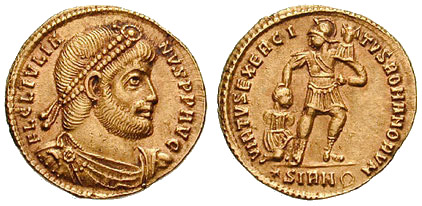By the time of the Roman emperor Julian in the fourth century C.E., the issue at stake for rabbinic sages was no longer the meaning of the election of Israel, a doctrine which was held in common by them, but rather the extent to which the God of Israel remained a universal God. Julian complained that according to the Jewish and Christian narrative, God had neglected all the other nations "for thousands of years, while men in extreme ignorance served idols, as you call them, save only that little tribe which less than two thousand years before had settled in one part of Palestine." Some of the sages, as recorded in the Sifre Deuteronomy, an early midrashic text, it would seem reversed Julian's argument and claimed that the nations had neglected God so long that they were doomed. Other sages held that God's beneficence remained for all.
(Quote and translation from Menahem Stern, vol 2, p. 533) Greek and Latin authors on Jews and Judaism / edited, with introductions, translations, and commentary, by Menahem Stern. Jerusalem : Israel Academy of Sciences and Humanities, 1974-1984. In 3 volumes. Series: Meḳorot le-toldot ʻam Yiśraʾel. Kitve ha-Aḳademyah ha-leʾumit ha-Yiśreʾelit le-madaʻim, ha-Ḥaṭivah le-madaʻe-ha-ruaḥ).
